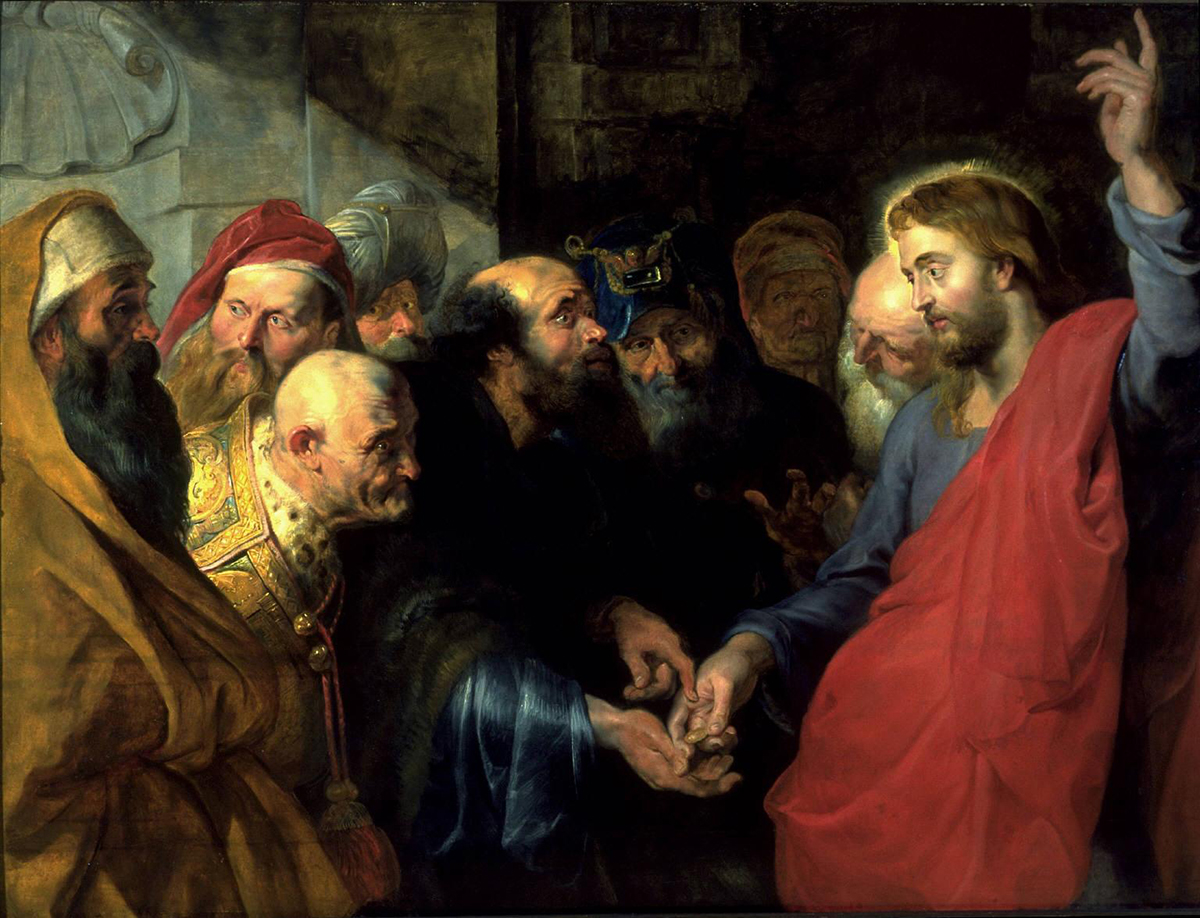Fifth Sunday after Pentecost, Gospel Year A
JESUS’ GRACE IS FOR OUR CREDIT
Matthew 11:16-19, 25-30
Fifth Sunday after Pentecost
Analysis by Timothy Hoyer
16“But to what will I compare this generation? It is like children sitting in the marketplaces and calling to one another, 17‘We played the flute for you, and you did not dance; we wailed, and you did not mourn.’ 18For John came neither eating nor drinking, and they say, ‘He has a demon’; 19the Son of Man came eating and drinking, and they say, ‘Look, a glutton and a drunkard, a friend of tax collectors and sinners!’ Yet wisdom is vindicated by her deeds.”
25At that time Jesus said, “I thank you, Father, Lord of heaven and earth, because you have hidden these things from the wise and the intelligent and have revealed them to infants; 26yes, Father, for such was your gracious will. 27All things have been handed over to me by my Father; and no one knows the Son except the Father, and no one knows the Father except the Son and anyone to whom the Son chooses to reveal him. 28“Come to me, all you that are weary and are carrying heavy burdens, and I will give you rest. 29Take my yoke upon you, and learn from me; for I am gentle and humble in heart, and you will find rest for your souls. 30For my yoke is easy, and my burden is light.”
DIAGNOSIS: It’s Hard and Heavy Using the Law
Step 1: Initial Diagnosis (External Problem): We Discredit the Person
Grounding: Judgment (use of the law) against a person is used to discredit the person’s message. The person’s message cannot be discredited because of how good a message it is. John’s message was to call people to turn to God because the kingdom of God had come near (Matt. 3:2), and it was a popular message (Matt. 3:5). Jesus’ message was the same (Matt. 4:17): By welcoming tax collectors and sinners, he revealed the new way the kingdom of God works.
Tracking: In order to prevent people being infected by COVID-19, gathering places (manufacturing, restaurants, and houses of worship) have been closed. That required a mandate from each state’s governor. A few Christian leaders used the law to speak against the message of the governor, saying that constitutional law undercut the governor’s message. Others have used their political ideology to discredit the message of their governor. And if we speak to friends about God, about a man who died on a cross, those friends often react with, “Are you some kind of religious nut?” They use the law (the insulting judgment of “religious nut”) against us to discredit our message.
Step 2: Advanced Diagnosis (Internal Problem): The Law Is How We Justify Our Actions
Grounding: People use the law to discredit a person or their message because the law is the only means available to them. Call it logic, reasoning, truth, fact, evidence-based science, it is all law. It judges, measures, accuses, and condemns. Not only is the law the only means available, it is also used because it is trusted as an effective means to discredit a person.
Tracking: People use the law to explain why they do things: “I made my decision after long and careful thought.” “After weighing the pros and cons of the situation, I thought this was the best thing I could do.” Some say they used evidence, facts, and that their next steps will be taken when those facts meet a certain criteria (the word “metric” is popular these days). Other people simply say they will do whatever the blankety-blank they want to. But always an explanation is used. Always a reason is given. Always there is a justification for what we do. We use the law because we trust it.
Step 3: Final Diagnosis (Eternal Problem): The Law Is How God Justifies His Actions
Grounding: The law is also used by humans to determine another person’s status before God: “He has a demon” is not only a statement to undermine the person and what the person says’ it also declares that the person is without God. Saying that someone is “a friend of tax collectors and sinners” also indicates that a person is without grace before God.
Tracking: When we trust the law to explain what we do or think, we have made the law what we honor and obey. We have made the law our god. The implication is we don’t think or trust that God is worth honoring and obeying. We have a problem with God. Even worse, we have broken the First Commandment; that means that God has a problem with us. The very law we use to justify what we do, is the law God uses to justify his judgment against us. As it is written, “Do not judge, so that you may not be judged” (Matt. 7:1).
PROGNOSIS: Jesus’ Grace Is Light and Gentle
Step 4: Initial Prognosis (Eternal Solution): Jesus Justifies Us
 Grounding: Into the world that prefers using the law, Jesus becomes God’s new way of dealing with those under God’s judgment. He will now embody his purpose in Jesus. To know who God is and how God acts we are to look only at Jesus. “No one knows the Son except the Father, and no one knows the Father except the Son and anyone to whom the Son chooses to reveal him (Matt. 11:27). Jesus is gentle, not demanding like the law; he is easy, not difficult or hard like the law; he is light like a feather, not heavy or burdensome or crushing like guilt. Jesus ends the law by his death, and by his resurrection creates grace and mercy for us.
Grounding: Into the world that prefers using the law, Jesus becomes God’s new way of dealing with those under God’s judgment. He will now embody his purpose in Jesus. To know who God is and how God acts we are to look only at Jesus. “No one knows the Son except the Father, and no one knows the Father except the Son and anyone to whom the Son chooses to reveal him (Matt. 11:27). Jesus is gentle, not demanding like the law; he is easy, not difficult or hard like the law; he is light like a feather, not heavy or burdensome or crushing like guilt. Jesus ends the law by his death, and by his resurrection creates grace and mercy for us.
Crossing: Jesus dying and rising is what Jesus does for us. By his death and rising he gives us his grace and mercy. We see and hear what he does for us. He forgives instead of condemns. He gives us life instead of taking it. By looking at him we see what God is doing and what God is like. Because of Jesus, we are now people with grace before God.
Step 5: Advanced Prognosis (Internal Solution): Jesus Is How We Justify Our Actions
Grounding: It is hard to try and find reasons for all we do. It is not pleasant. Jesus’ way of being friend to tax collectors and sinners, his way of dying and rising for them, is grace and mercy. Those are what he uses to justify what he does. Grace and mercy are what he uses to justify all he does, so he does not have to find a new reason for each act he does. It’s all grace and mercy for us. Jesus invites us to turn away from excuses and explanations and judgment, and to be with him in his way of grace and mercy. His way of grace and mercy is easy and light and gentle.
Crossing: Jesus’ gentleness to us gets us to trust him; his easiness gets us to trust him; his lightness and comfort get us to trust him. When we trust him, we use him as our goodness. He becomes the reason we do things; he becomes the justification for our actions; following in his way of mercy and grace is how we honor and trust God.
Step 6: Final Prognosis (External Solution): We Give Jesus’ Goodness to Others
Grounding: Jesus has a message for us. He has grace and mercy for us, so in him we look good to God. He does not discredit us. He does not try to undermine what we say, so long as what we say is that Jesus is Lord.
Crossing: We no longer need to use the law to discredit a person or their message. Our purpose or reason or justification of what we do is Jesus’ grace and mercy. We simply speak the goodness of Jesus to others. Instead of demanding people prove their worth, we give them the worth of Jesus. Instead of trying to make others look bad by attacking them, we use Jesus grace and mercy to make them look good. We do not burden others with hard and difficult tasks before we accept them; rather, we make it easy and light with our gentleness to show them they are accepted and loved by us as a gift, that is, by grace. We make people feel they are worth something by our words and actions of grace. Jesus is the reason and explanation for what we do. He is our justification for making others look good (forgiven) to God.
